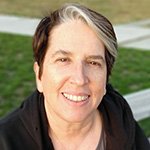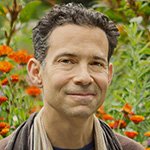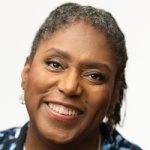
We're in difficult times - possibly at the brink of extinction. What can we do in response? Some nonlinear steps: A.) Notice what isn't working; B.) Mourn so that we can move "towards" from an expanded space inside; C.) Analyze to bring a fuller understanding of what's happening and what's needed; D.) Reframe our inner and outer narratives; E.) Discern what we can contribute; F.) Care; and G.) Bring in support for more resilience and creativity.
Details...What is it that we are taught we can’t have, and what is it that we are encouraged to pursue instead? This guide could help you see through what's hidden behind the curtain of our societal conditioning.
Details...There's the real need. And then there's the privilege that’s offered as a substitute for it. Privilege substitutes support the existing structure of society. It can look to us as if giving up the privilege would amount to giving up everything -- if we don't believe the real needs can even be experienced. If we connected directly to the needs, we could become subversive, agents of change.
Details...In groups, relationships and society we may not want to dominate or take away from others’ access to power, to choice, to participation in decisions, nor to shaping the vision and direction of the dynamic. And yet how do we do it anyway without knowing it? Discover how privilege operates on a societal level and becomes so invisible in groups. Learn why the conversation is usually excruciating for members of both privileged and under privileged.
Details...Intermediate Skill Level
Article
12 - 18 minutes
Why does NVC practice, and NVC training/coaching, appear to be not enough to bridge divides between people? This article takes a look at the trickle down effect of our societal conditioning, what we can add to our NVC lense, and what we can do "upstream" when NVC doesn't seem to be enough. Additionally, the article talks about unseen constraints that men, women and minority groups face in organizational settings...
Details...All Skill Levels
Article
39 - 60 minutes
If we're to have a better future, our biggest task will be to reexamine what the police are, their place in the system, and more. Police violence exists by systemic design. The myths of where the problems and symptoms lie with the police, capitalism, laws, government, citizens, class and racism --plus the relationship between all these-- is what keeps oppression ongoing on a mass scale. For change to happen, we'll need to find systemic leverage points, and use privilege to benefit those without it. Read on for more.
Details...Human health is connected to health of ecosystems and other societies. Our wellness and liberation is found in our interconnection, kinship, reverence for life, and solidarity. Solidarity erodes through narratives, practices and policies that separate us from each other -- and this impacts societal functioning. The breakdown creates conditions for pandemic, racism, police brutality, exploitation in untold numbers, and extinction. Read on for how all is connected.
Details...Working for racial justice is a shift in perspective—a shift in understanding and empathy that leads to a change in our actions: to listen instead of talk, to follow instead of lead, to yield rather than dominate. And to accept that I will continue to mess up. Part of working to undo racism is having the humility to know when our own understanding is limited. Read on for more this, and how it relates to meditation -- plus personal and collective liberation.
Details..."All humans share the same needs" -- tragically, this idea can hide the reality that some people with less power in society have needs that go unmet to a greater extent, much longer, and with more dire consequences. Often, when the marginalized bring up experiences related to their membership in a certain group, their pain isn't acknowledged, and focus shifts to the listener's discomfort. The concept of universal human needs can be used to silence and minimize their pain. Read on for how to proceed.
Details...How much money to pay? And how much money to ask for? The supply and demand logic basically say that we ask for the most that “the market can absorb” and pay “the least that we can get away with.” We can instead, we can engage in experiments that focus on connecting to and satisfying needs. We can also engage with our varying degrees of access to resources within the existing economy and consider how we want to make choices about resources, especially when we have access to power.
Details...



